A Room of One's Own: Dia and The Moth
Date:
Author: Jocelyn Pederick
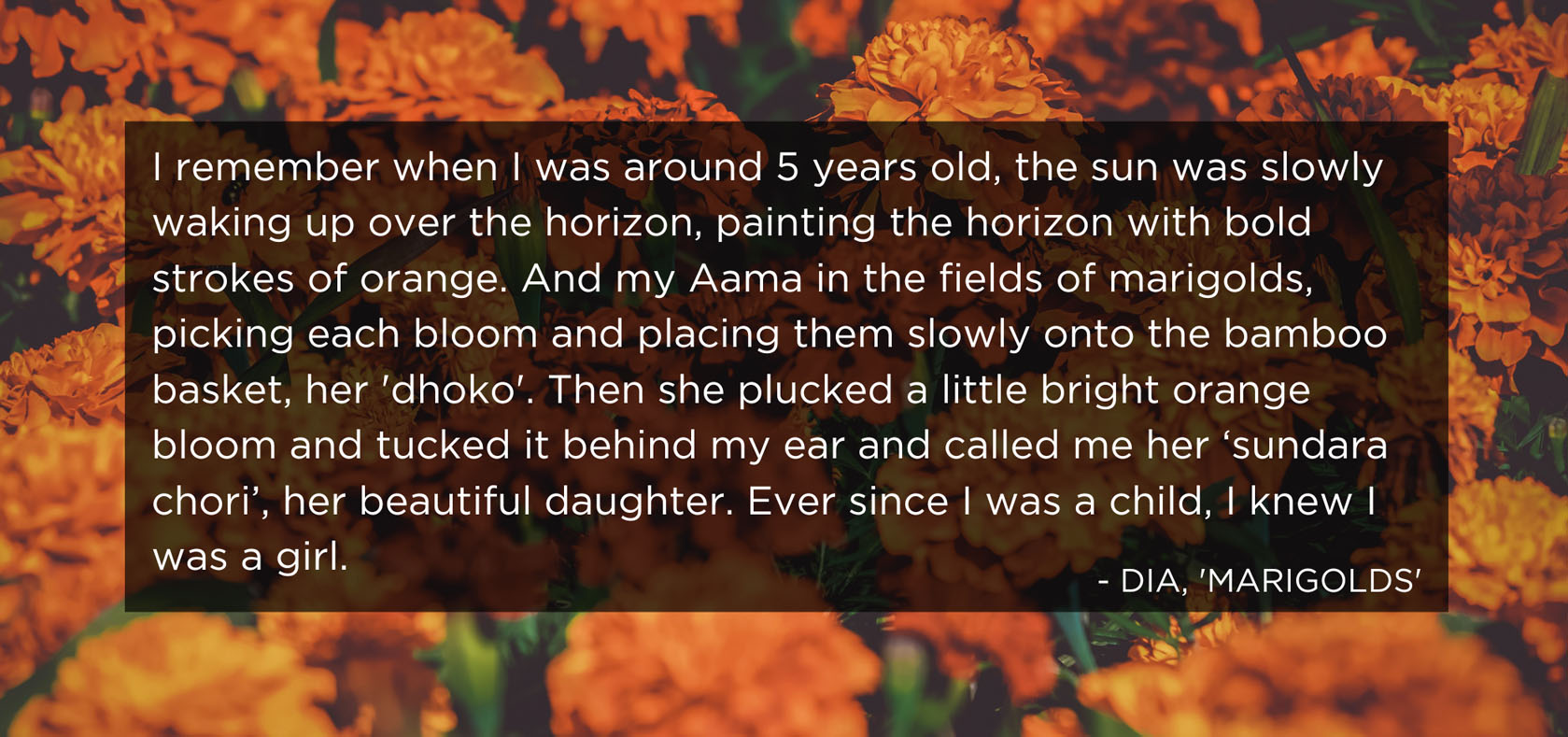
Dia’s remarkable and powerful story of a unique bond between a mother and daughter reveals the painful and complex experience of growing up queer in Nepal. This vivid and profoundly moving personal account has now been shared with millions as part of the storytelling series The Moth, featuring personal true stories told via radio, podcasts and live events.
Dia, a proud queer Indigenous trans woman, law graduate and writer, is a current research fellow with The Open Institute. Dia’s story was produced as part a series of workshops held through a UN Women partnership with The Moth that began in 2021. Over three days of workshops, 30 women from Nepal and neighbouring countries participated sharing their personal stories to affect social change.
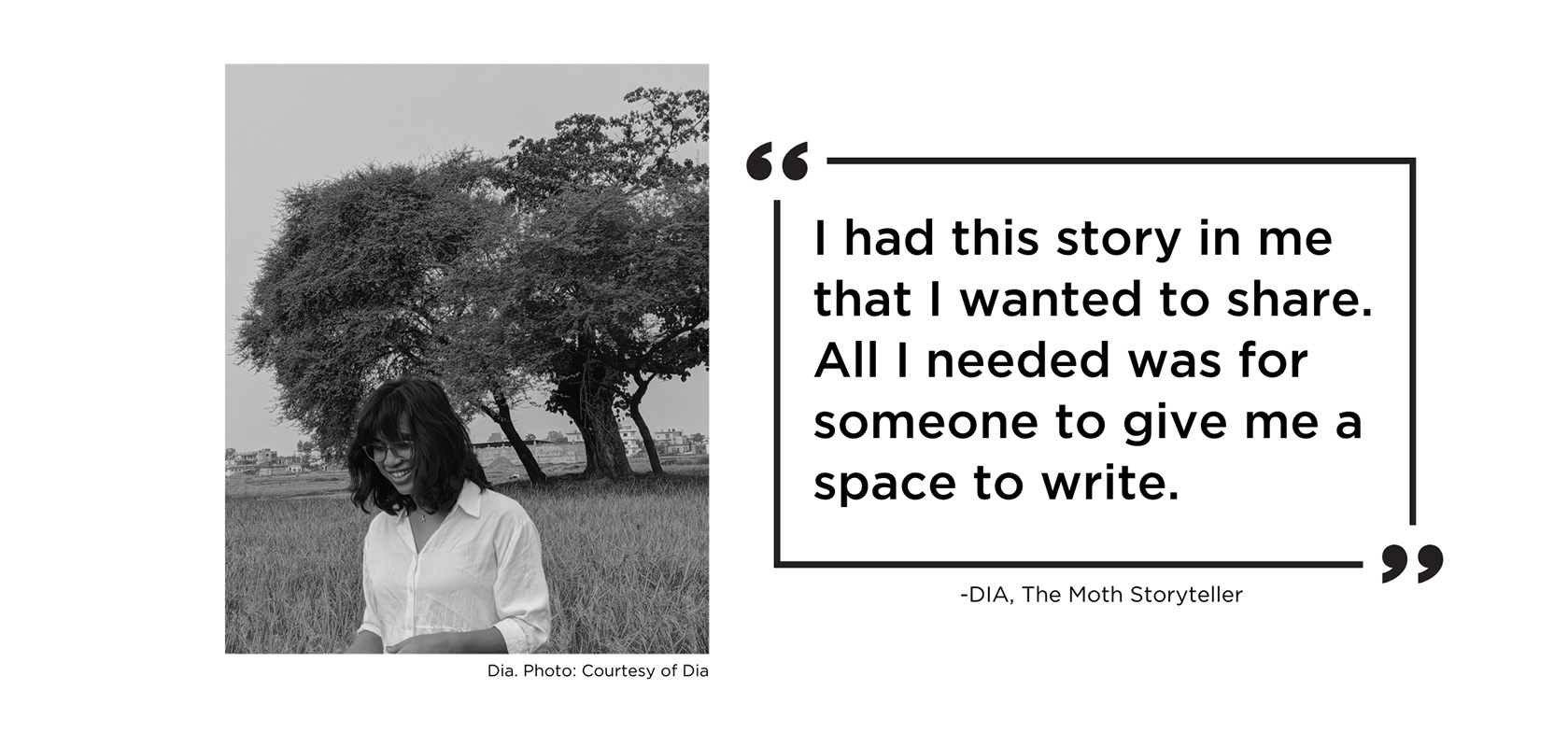
Dia says the workshop experience reminded her of A Room of One’s Own, the essay by 20th-Century British writer Virginia Woolf on the structural challenges facing creative women. "The Moth gave me a space, an uninterrupted space to write for myself. I had this story in me that I wanted to share. All I needed was for someone to give me a space to write."
Ashma Shrestha, communications and development officer with UN Women Nepal, explains that the idea behind this innovative collaboration with The Moth, was in the “power of words”.
“Storytelling has a critical role in our work. UN Women Nepal uses storytelling in across our programmatic work, in advocacy and research. We know it is important to raise voices, and this was a way to centre-stage the voices of the people we work for, in the mainstream.”
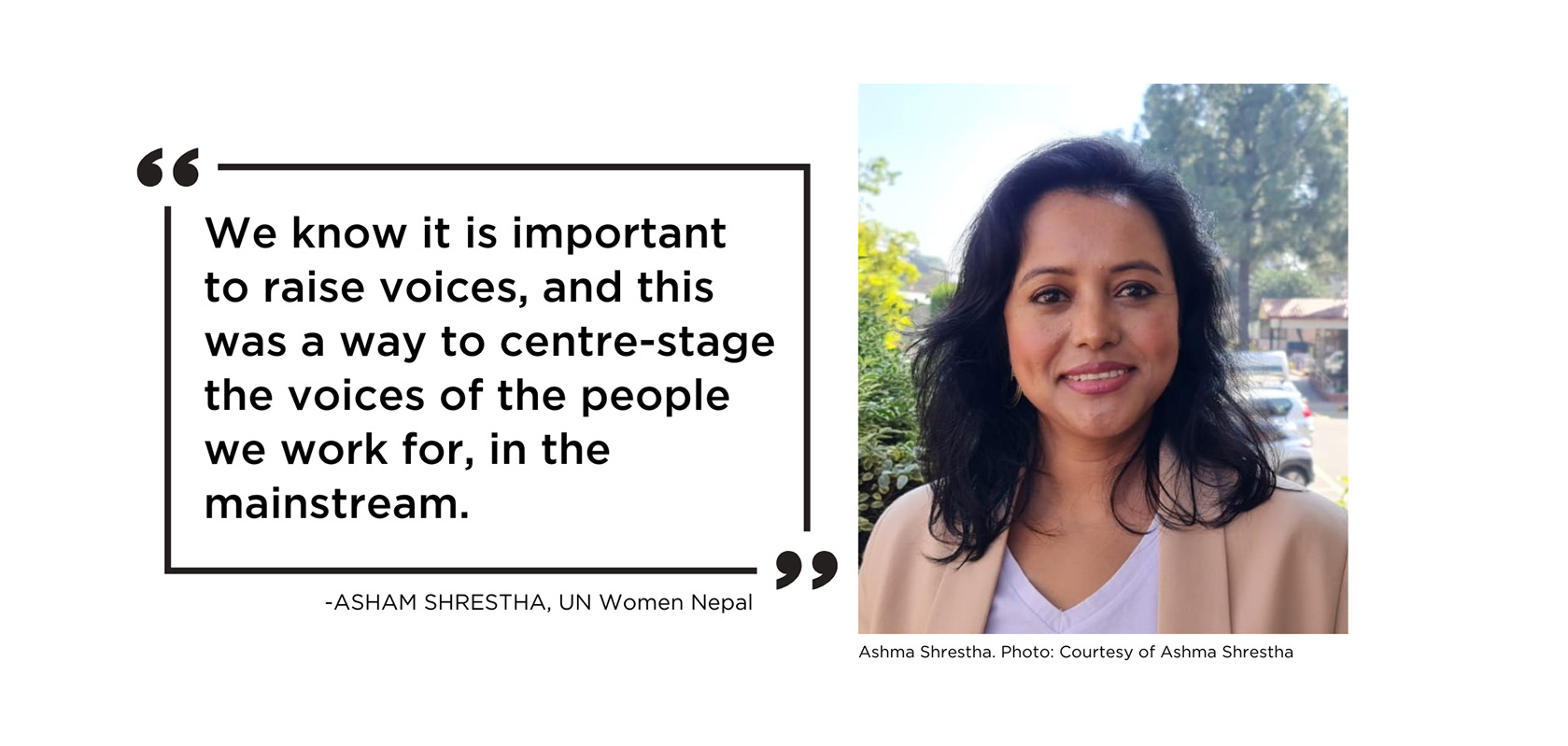
Melissa Alvarado, Programme Manager of the Ending Violence against Women Programme for the UN Women Regional Office for Asia and the Pacific, explains why investing in story is a fundamental strategic part of their work.
“Personal stories have the power to reveal hidden truths and shared experiences. It is the stories and experiences of survivors that guide us, teach us, and shape our actions. We are motivated to act, respond, and prevent, in direct response to the stories of survivors of violence.”
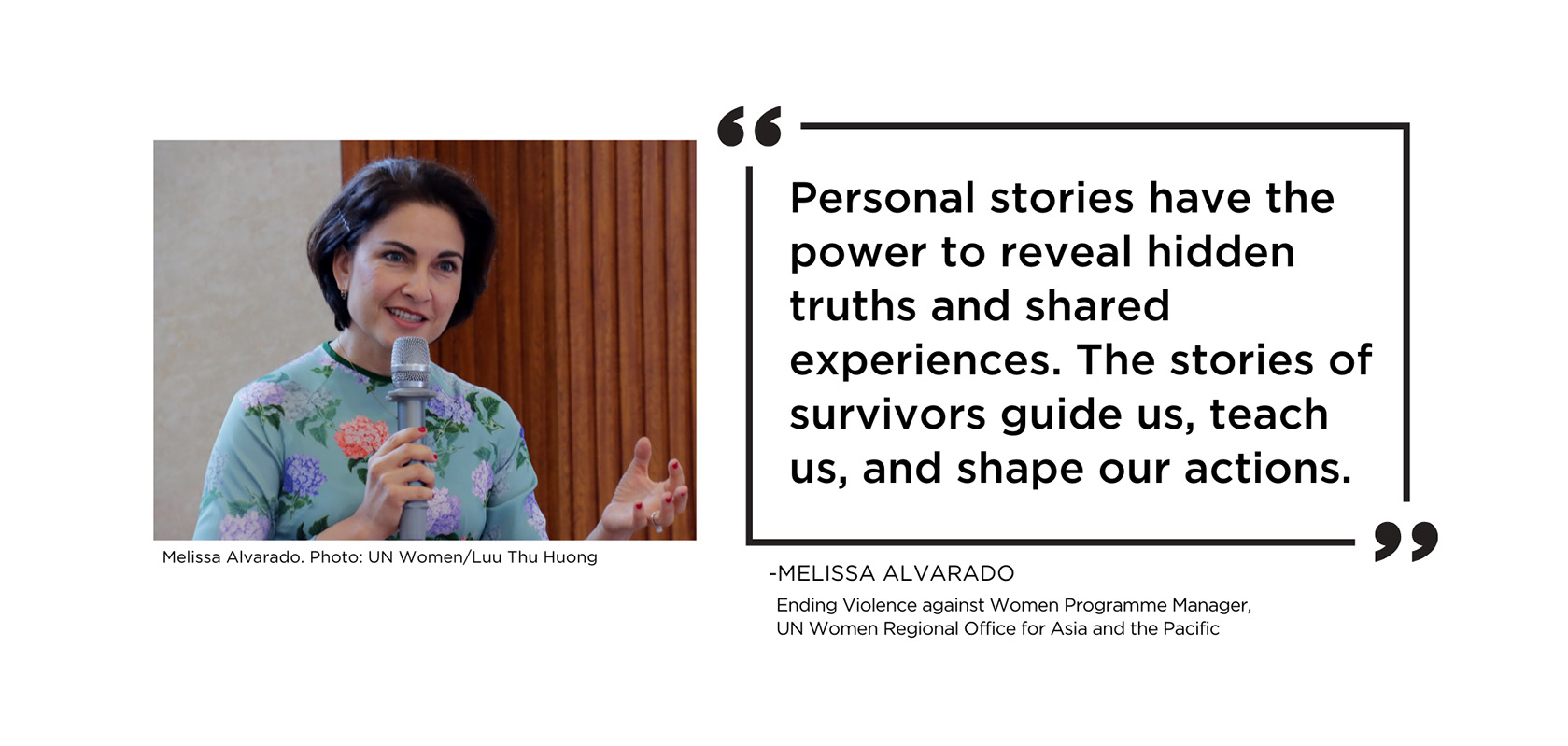
The Moth has been leading a first-person storytelling revolution since 2008. A non-profit initiative, it ”celebrates the commonality and diversity of human experience through the art and craft of true, personal storytelling”, in the words of its website. Its award-winning podcast is downloaded more than 90 million times each year. At the heart of the Moth Global Program is a three-day intensive workshop on storytelling for change. So far, this has worked with more than 350 storytellers from over 40 countries.
Although Dia talks about being “terrified” that millions of people have now heard her story, she knows that her story is unique and important, representing a queer Nepalese narrative. "Everyone loves conflict, and they assume that since you're from Nepal, your parents are obviously not okay with [being queer]. But for me, it's not black and white. Just because my mother never had a formal education or exposure outside her village, that didn't mean she wasn't accepting or not understanding."
Dia believes it is essential that queer voices be given a space to share their stories. Shrestha explains that within UN Women Nepal, storytelling forms an essential part of their work to understand and respond to the needs of women. "I think more authentic experiences and stories are needed, especially queer people who come from marginalized communities. They haven't had any voice or agency, and even when they are allowed platforms to tell stories, it's always curated through someone else's eyes.”
She knows that it is only through understanding and elevating a broad range of stories that we can begin to challenge what she calls the 'monolithic' understanding of what being queer means. “When we talk about women or people from marginalised communities, they are not homogeneous; there are so many intersections of inequalities, and how do you bring all those out. That is what makes storytelling a powerful tool.”
As a storyteller and artist, Dia has an innate belief in the power of storytelling to shape values and affect positive change. "My mother and the older generation grew up with folk tales that are embedded in their lives, and that's how they form their ideas. Stories are like little seeds. These seeds are references that help shape ideas and thoughts, and that's how stories make change."
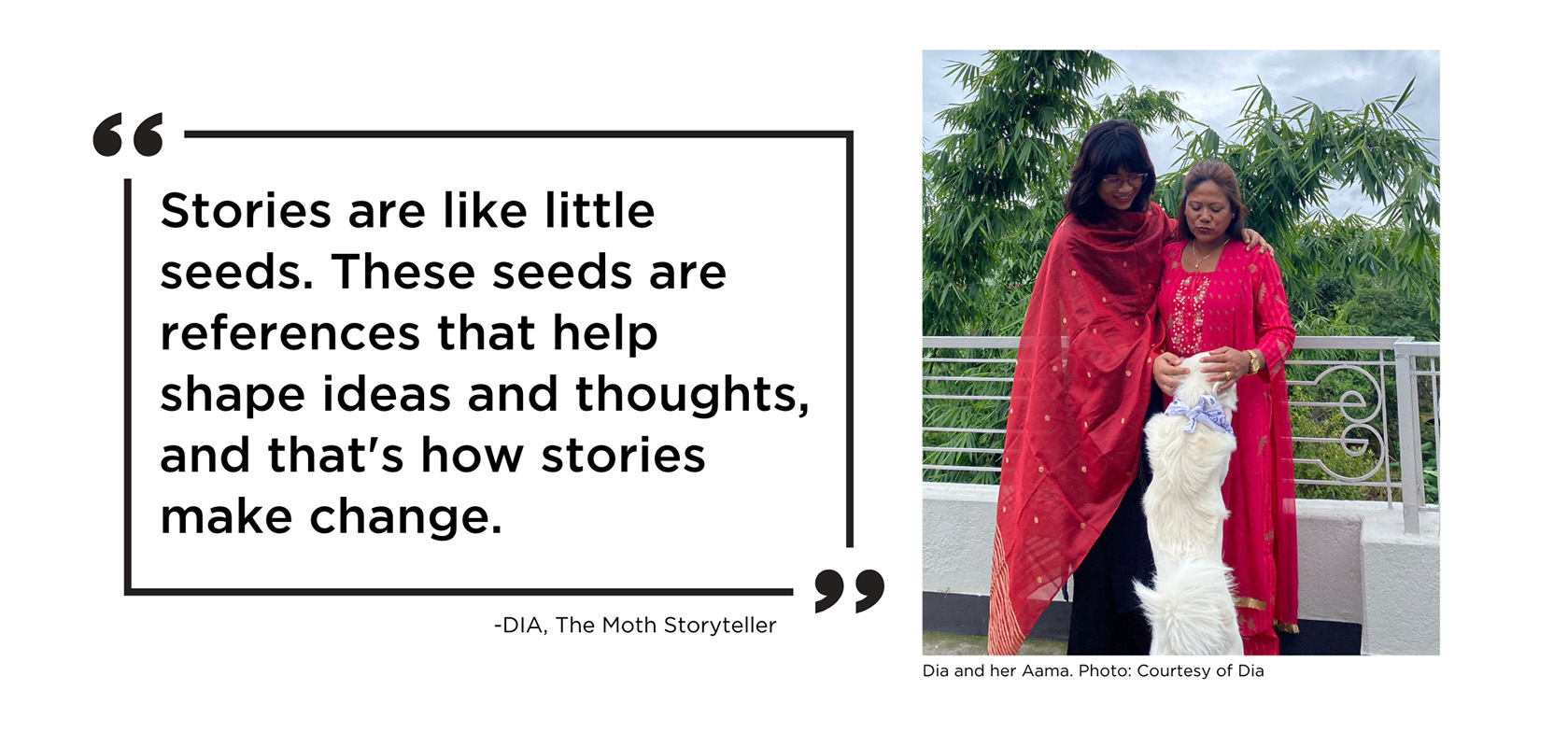
Dia’s mother is still one of her biggest supporters. Indeed, when Dia told her story it also became a way for her mother to share her own story for the first time. "She saw my honesty in sharing my story with the world, and then she shared a part of her that I hadn't known. She wants me to write more, do more, put myself out to the world more."
For Shrestha, the experience led her to reflect on the importance of providing a safe and supportive environment for storytelling, to make sure that storytelling initiatives don’t do more harm than good. "Extracting stories and then leaving can leave people feeling hollow. Women shouldn't feel like they've given away something. That is something I have taken into my heart. The Moth storytelling workshop was an activity where all participants left feeling fulfilled.”
UN Women’s partnership with The Moth is ongoing, with story workshops planned for early 2023. “We have seen how the Moth’s approach to storytelling is respectful of sensitive issues such as trauma and violence and honours the full and diverse human experience,” explains Alvarado. As we seek to transform gender inequalities, turning to stories to validate and inform our full human experience feels like a natural fit.”
Dia is currently navigating the complex bureaucratic and legal processes to have her name and gender recognized under the law. She is documenting these experiences and is focussed on helping other queer or marginalized people find a room for their own stories too.
"I want to make my life where I can write and help others write, as well. I feel like that's what you do as a writer; you share hope. You say, 'Here's a little hope. Please carry it forward'. And I think that's what I feel I've done. I contributed a little hope to the world."
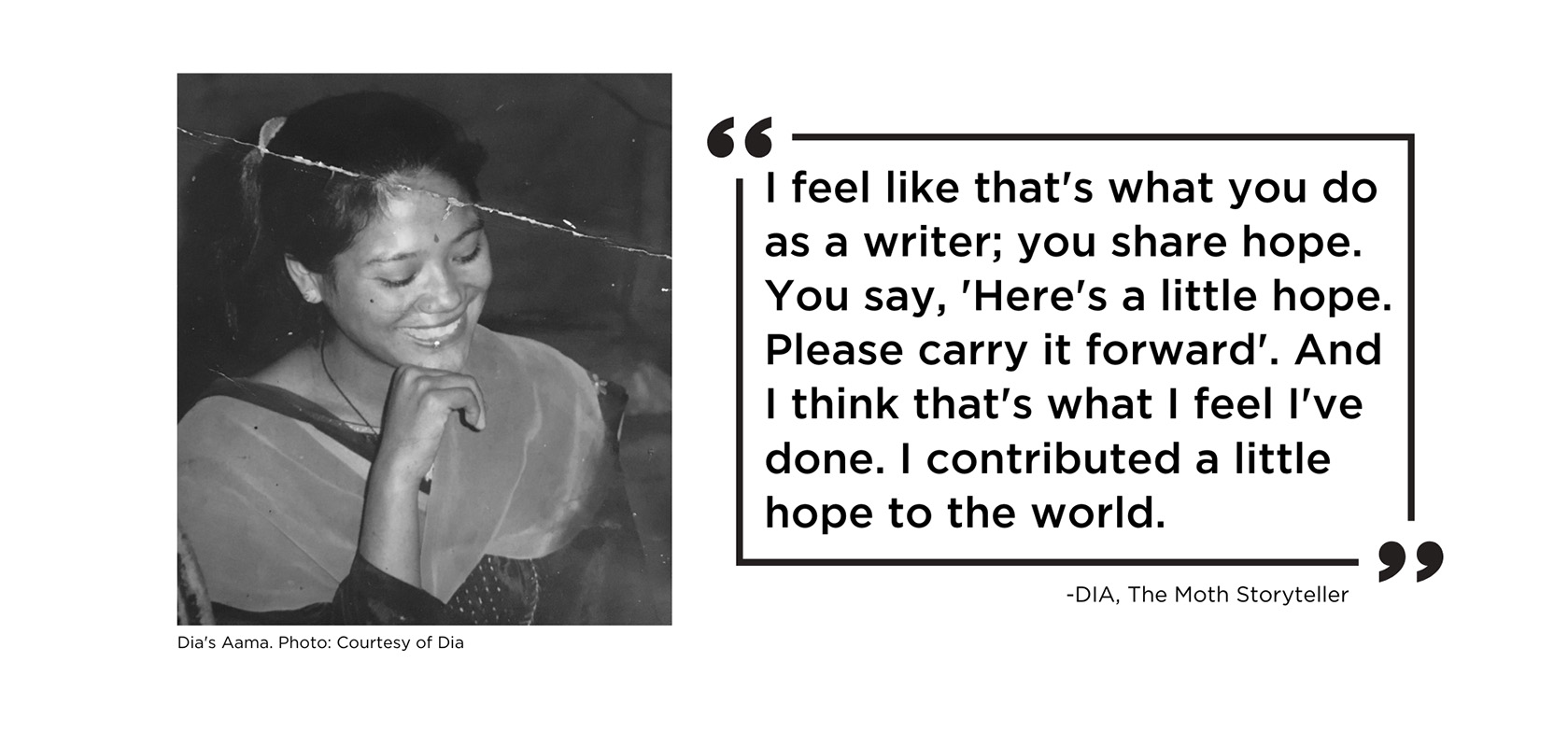
See Also
You can hear Dia’s story on The Moth podcast on Apple Podcasts, Spotify or on their website.